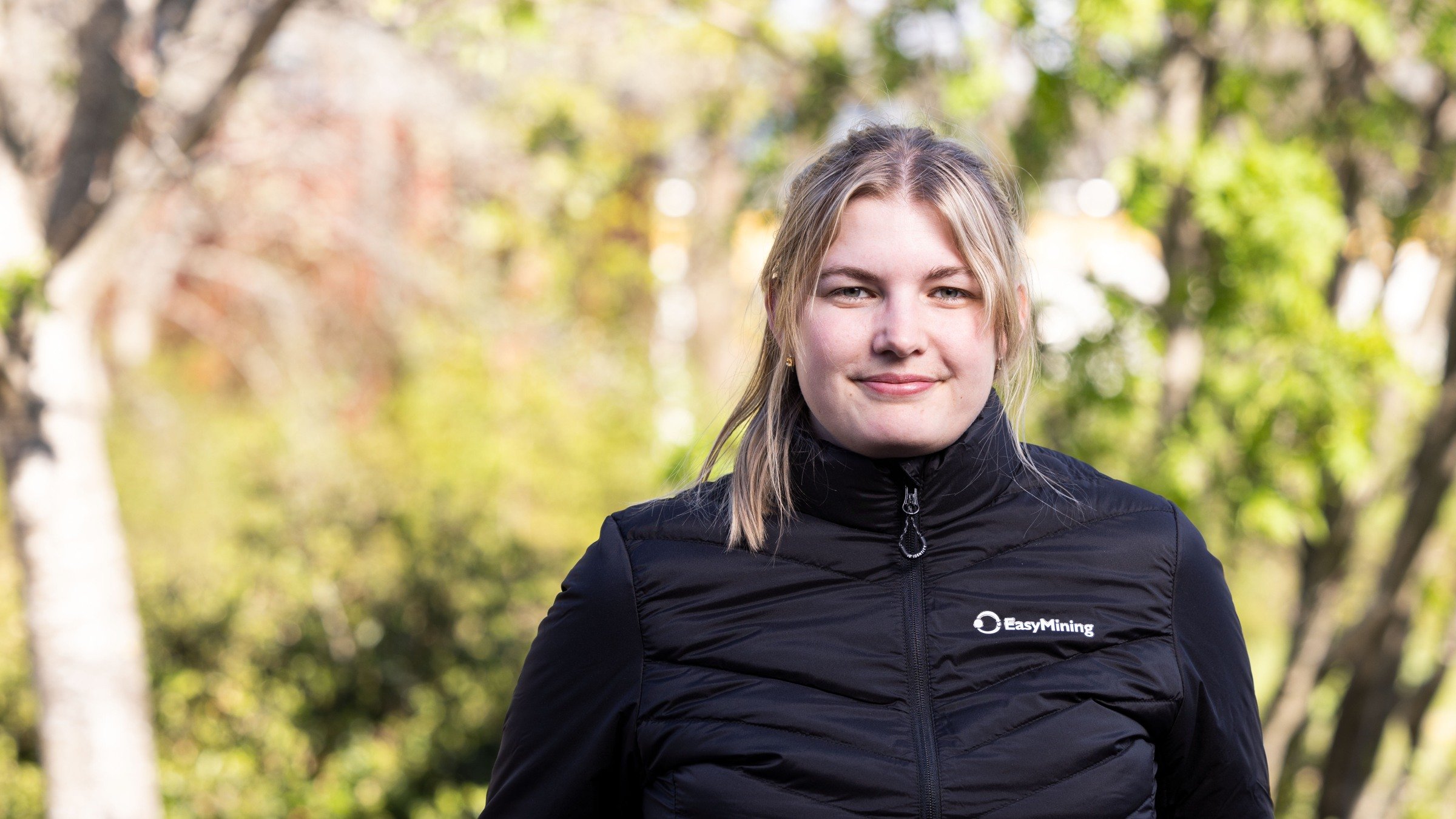Creating sustainable solutions for agriculture
Based out of EasyMining’s office in Uppsala, Åström focuses on product development for the end results of innovative reclamation methods.
– Mainly my task is to figure out the best forms for the nutrients we produce in our processes and how they will be sellable on the fertiliser market. So I need to know what demands the customers have and what regulations we need to follow, she explains.
Much of Åström’s time in the last year has been spent on EasyMining’s Aqua2N process, which recovers nitrogen from the liquid that’s separated out of sewage sludge in wastewater treatment plants. (Read more about Aqua2N here)
According to Åström, while research is a big part, it’s collaboration – both with those inside and outside the company – that’s at the core of her work, such as coordinating feedback on samples produced by the Aqua2N pilot plant.
– I get input from possible customers, like “the pH is too high” and then I need to take that and review it together with the chemists and engineers and say “Can we change the process to get the product to where the customers want it?” she explains.
The procedure has to be done over and over again to ensure every necessary adjustment can be made so that reclaimed nitrogen can compete in the fertiliser market. And that’s not just for commercial gain. Studies show that traditionally-sourced nitrogen fertilisers are responsible for more than 2% of total global climate emissions, largely due to the use of fossil fuels. Processes like Aqua2N can dramatically reduce those emissions.
– We need fertilisers if we are going to feed the growing population. So if we want to be successful in decreasing our environmental footprint and at the same time produce food for the whole world, we really need to use the recycled nutrients that we already have, says Åström.
